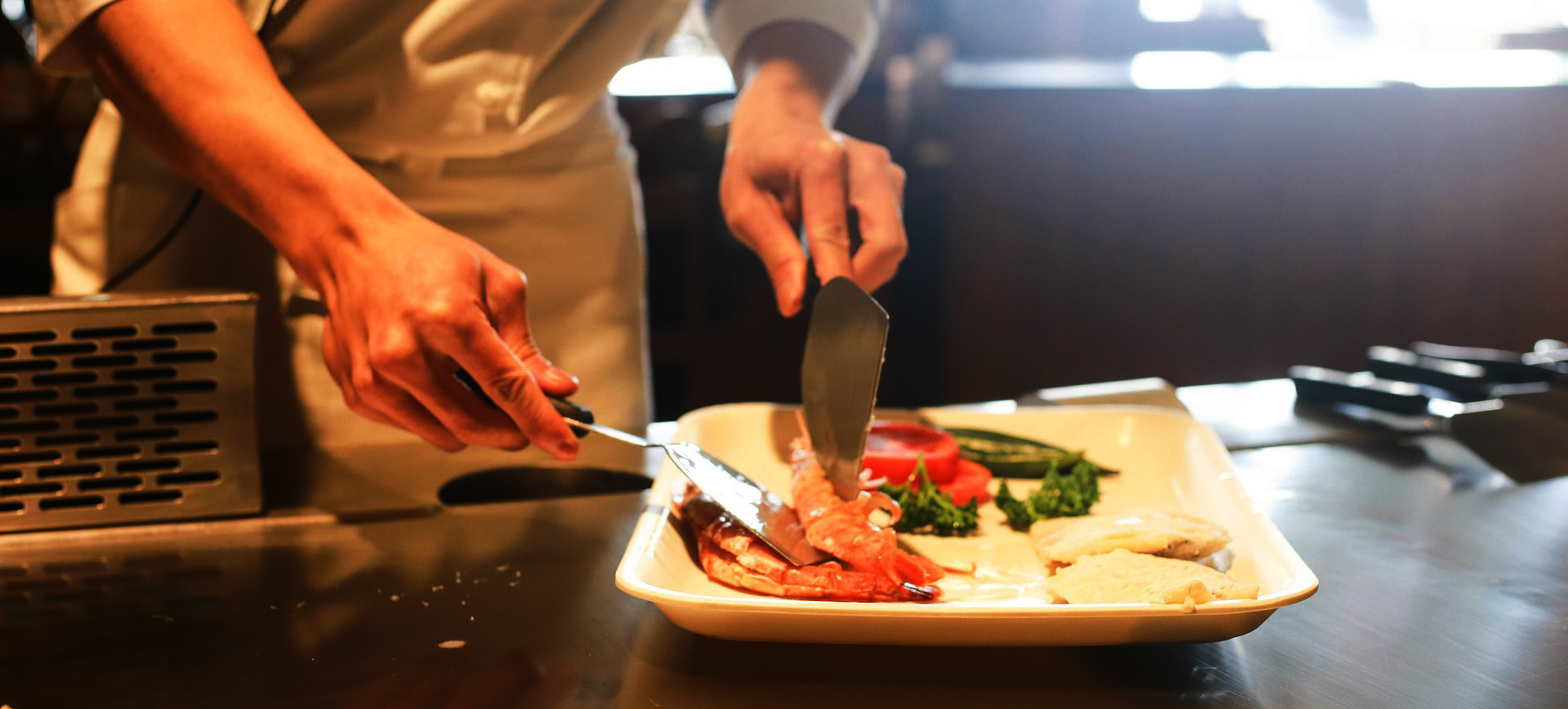 Today, cruising is becoming increasingly inclusive, with people across ages and dietary needs coming on board to have a good time. This makes cruise ship chef jobs that much more skilled as many dietary restrictions, such as allergies, can be harmful to the guest.
Today, cruising is becoming increasingly inclusive, with people across ages and dietary needs coming on board to have a good time. This makes cruise ship chef jobs that much more skilled as many dietary restrictions, such as allergies, can be harmful to the guest.
Voluntary restrictions include diets such as vegetarianism, lacto-ovo vegetarianism, veganism, pescetarianism and others, in which people do not eat certain food items or meats. This is mostly prompted by personal or religious philosophy and many can be quite strict about it. This means that any mistakes on the chef’s part can lead to complaints to the cruise line, so staff in the galleys must be careful.
Here is what the most popular diets include:
Vegetarianism: A diet that excludes meat, including products that result from animal slaughter, such as gelatin and rennet. Hindus, Buddhists and Jains often follow this diet, although some may be lacto-vegetarian. Jains additionally do not consume root vegetables such as potatoes, carrots, onions, garlic, etc, as well as mushrooms, fungi and yeasts. Strict Jains may not consume fermented foods either such as beer, wines and other alcohols.
Fruitarianism: A diet that consists mostly of raw fruits
Lacto-vegetarianism: A vegetarian diet that includes eggs, but excludes dairy.
Ovo-vegetarianism: A vegetarian diet that includes dairy, but excludes eggs. Many Indians follow this diet, and as such, a lot of north Indian cuisine adheres to it
Lacto-ovo vegetarianism: A vegetarian diet that includes dairy and eggs
Veganism: Vegans extend the vegetarian diet to exclude any items produced by animals, including bee honey, dairy and eggs
Pescetarianism: A diet that includes fish but not meat
Flexitarianism: A diet that is mostly vegetarian but occasionally includes meat
Halal food: Many Muslims strictly adhere to diets that consist of halal food or food allowed to be eaten under Islamic law. Those not permitted are called haraam, and include alcohol, pork, and meat from any animal not slaughtered according to Islamic ritual methods
Kosher diet: Cruise ship chefs catering for Jews on board must learn more about their Kashrut laws which requires food to be prepared a certain way for it to be considered Kosher. It prohibits alcohol, caffeinated beverages and certain shellfish.
In some diets, such as the variants of vegetarianism, chefs use substitutes, such as vegetable oil instead of butter, soy or almond milk instead of cow’s milk, or a mixture of baking powder, oil and water instead of egg.
Cruise ship chefs must also consider diets for guests with food allergies. Any food can cause an allergy, but the most common ones are cow’s milk, eggs, peanuts, fish, shellfish, tree nuts like cashew or walnut, wheat and soy. Peanuts, fish, shellfish, soy, tree nuts, and gluten from wheat can cause severe reactions including anaphylaxis characterised by swelling and breathing problems, which must be treated using epinephrine.
Typically, guests fill out a form ahead of the cruise, or on the first day, noting their dietary restrictions and allergies. Main dining rooms and specialty restaurants often point out the main allergens on the menu card itself, and kitchens ensure they are equipped to handle such cases. For example, dishes made for people with tree nut or peanut allergies will in no way come in contact with those containing the allergen.
Many other diets exist, such as Paleo diets, macrobiotic diets, organic food diets and Mediterranean diet. Because any hospitality venture, including cruises, are rated mainly on service, cruise ship chefs and other kitchen staff must go out of their way to ensure standards are met, particularly when the health of a guest is concerned.
Cruise ship chefs should constantly read about the various diets and allergies, what to include and what to exclude, so they are better able to help guests with specific culinary requirements.

